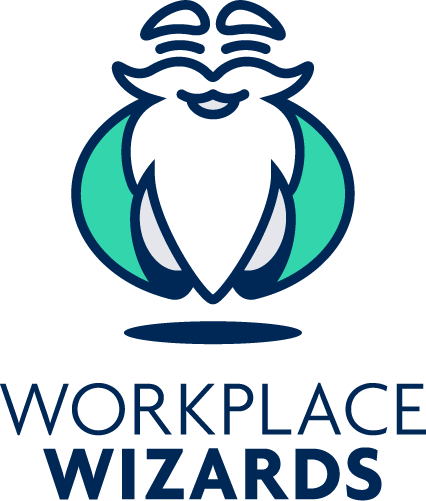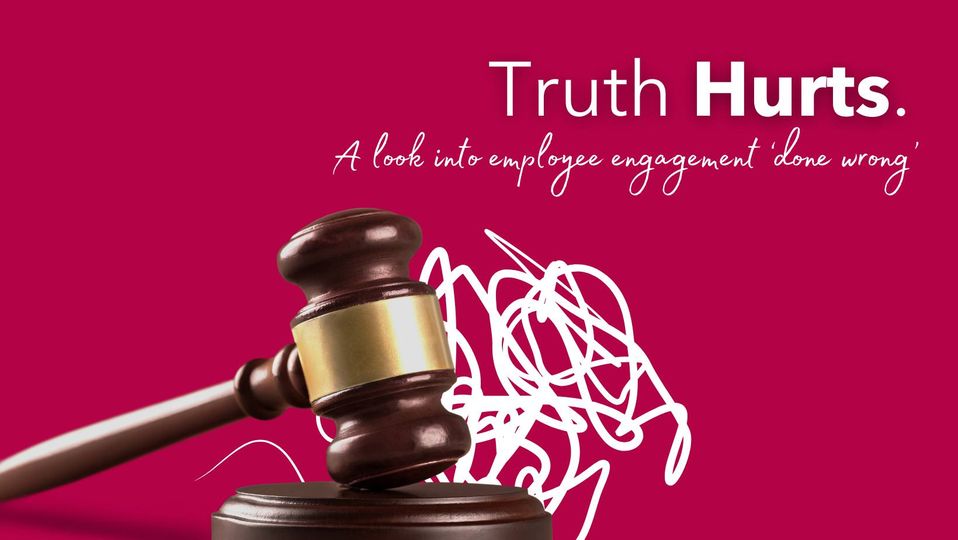Your employees aren’t your friends – but everyone still wants a friendly workplace. How should employers navigate the tension between these two potentially opposing desires?
You’re sitting around, having a drink with your friends, and the person across from you lets fly with a rude comment or an off-colour joke or suggestion. Cue the eye rolls and groans. Luckily, it probably won’t escalate beyond that.
The workplace is another story. While inappropriate behaviour with friends might (at worst) result in issuing a shame-faced apology to your mates, inappropriate behaviour in the workplace can result in reputational damage, job loss, employee attrition, legal battles, or even a trip to the Australian Human Rights commission.
All the same, the average person will spend a total of 13 years and 2 months of their lives at work. In contrast they will likely only spend 368 days of their life with friends. With people working longer and longer hours, and the lines between our work and personal lives blurring, how should employers balance the natural desire to foster friendship in the workplace while preserving appropriate behaviour?
Perhaps the best way to determine how to achieve this delicate balance would be to figure out what not to do.
Let’s use Lizzo and her recent employee woes as a case study.
The Lizzo Lawsuit and its relevance
In August, a lawsuit was filed in California against Lizzo by three former dancers. The allegations were shocking and accused the singer of:
- creating a hostile work environment through sexual harassment (especially at after-party events)
- allowing religious harassment by senior staff members
- racial harassment perpetuated by her production company (BGBT)
- disability discrimination
- assault
- false imprisonment
The plaintiffs allege that these incidents caused them physical and emotional harm and distress, and a loss of earnings and employment benefits.
Although an American pop star’s scandal might seem like a far cry from an Australian employment context, many valuable parallels can be drawn. The primary allegation against Lizzo is the ‘hostile work environment’ she created through sexual harassment. In Australia, laws surrounding psychosocial hazards in the workplace would be most analogous to the Fair Employment and Housing Act (FEHA) provisions used by the plaintiffs in the Lizzo suit.
Psychosocial hazards are factors in the design or management of work that increase the risk of work-related stress and can lead to psychological or physical harm. Examples of psychosocial hazards might include poor supervisor support or high job demands.
From 2021 onwards various Australian states implemented codes of practice to address psychosocial hazards in the workplace. In 2022, the Commonwealth amended Work Health and Safety regulations to include a positive legal duty for persons conducting a business or undertaking to implement control measures to eliminate psychosocial risks, or if not reasonably practicable, to manage them. Some psychosocial risks are inherent to specific jobs, for example, medical personnel facing the intense emotional demand of caring for sick patients and their family members. Such risks should be identified and minimised wherever possible. However, other psychosocial risks, such as bullying and harassment are not inherent to any jobs and should be prevented and ultimately eliminated.
In the lawsuit a specific connection is drawn between the conduct of Lizzo, her senior staff, and her production company and the consequent emotional distress and anxiety suffered by the plaintiffs. Although harassment in the workplace can cause a variety of harm to employees, regulations surrounding psychosocial harm ensure that workplaces can be held liable for the psychological harm caused by such behaviour.
What is the difference between a workplace and a social group?
Much is made nowadays about workplace culture, developing friendships and collaborative relationships at work. However, there is an inherent power imbalance between employers and employees that often does not exist in social relationships between peers. Because management and senior staff have the power to hire and fire workers, and because career progression and earning capacity are dependent on the preservation of these relationships there is an ever-present undercurrent of control and authority within the employment context.
In the lawsuit the plaintiffs discussed the pressure they felt to go along with the inappropriate demands and behaviour occurring in their workplace because they feared losing future employment opportunities with Lizzo, were subject to pressure by senior staff and management, and realized that employees who attended after-work events were favoured and rewarded with greater job security.
Unlike a friendship, in a work context people are often too scared to ‘speak out’ or ‘opt out’ because they assume that they will either face direct or indirect retribution from their employers. The stress caused by this pressure to conform to acts or conditions the person is uncomfortable with, and the threat of demotion or job loss can increase unnecessary psychological stress.
Negative outcomes
For the employee:
Psychosocial hazards, especially hazards that recur over a long period of time, can cause a an impact to both the physical and psychological health of employees. Exposure to such risks can result in:
- Burnout
- PTSD, anxiety, depression, and sleep disorders.
- Musculoskeletal injuries, fatigue related injuries, or chronic disease.
For the workplace
For workplaces, although often more subtle, psychosocial risks can still wreak havoc. The following outcomes are possible:
- Loss of productivity and under performance
- Employee turnover
- Reputational damage and a weak employer brand
- Costly legal fees
In addition to the obvious negative outcomes above, reputational damage is also an important factor for workplaces to consider:
- Workplaces that project certain values might suffer greater reputational damage than a comparable business. For example, a Not-for-Profit focusing on mental health might face greater reputational damage if it is widely known that they have a culture of bullying and harassment within their organization.
- Workplaces that rely on extensive publicity or social media to attract clientele.
Even if legal harm or a court case can be avoided it is wise for employers to be wary of the court of public opinion, where it is much easier to lose. Although Lizzo’s case has not yet (at the time of writing) reached a Californian court-room, many online have already made up their mind based on the dissonance between Lizzo’s professed values and her alleged behaviour. Furthermore, economic damage can result even before the legal dust has settled, as demonstrated by the fact that Lizzo has already been removed as a contender to perform at the next Superbowl Half-time show.
Is your workplace at a greater risk?
Much like physical risk, some workplaces have a higher likelihood of psychosocial risk:
- Less formal work environments can be at a higher risk for particular types of psychosocial risks such as harassment. As there is less of a demarcation between work and personal lives in such environments often employers and employees can forget the more appropriate behaviour necessary in such a context. Additionally, employers in industries where norms are different, such as the entertainment industry, can sometimes find it difficult to find the ‘line in the sand’ appropriate for their industry.
- ‘Niche’ workplaces can be at a higher risk for particular types of psychosocial risks such as harassment and bullying. In such workplaces, there is a greater pressure for employees to conform to behaviours they are uncomfortable with lest they loose a job in a small field where individuals get work based on referrals from seniors, networking, or connections.
- Inter-state/International workplaces. If your employees are located across multiple states or countries, it is possible to fall afoul of legislation in the locations where they are employed. The plaintiffs in the Lizzo case are generally based in California, while Lizzo’s management company is based in Delaware, and many of the factual instances of harassment in the case occurred while touring in Europe.
- Less diverse workplaces. Workplaces which are predominantly of one gender or ethnic group may cause psychological stress to employees outside the dominant group. In one case, taken to the Federal Court but eventually settled, a female complainant who worked at a large bank alleged discrimination and a hostile workplace culture, in part because male employees would often visit strip clubs with and without clients and discuss these visits during work. Although quite diverse, such a dynamic was replicated in Lizzo’s workplace where the plaintiffs were taken to a burlesque club in Amsterdam for a staff after-party. While diversity cannot fully eliminate such risks it should be considered a mitigating factor.
What can you do to prevent psychosocial harm?
- Identify, Eliminate & Mitigate psychosocial hazards in your workplace by consulting state and federal legislation and ensuring your workplace is compliant
- Upskill employees with relevant training such as appropriate workplace behaviour, effective conversations at work, and respect at work and sexual harassment prevention training
- Create a psychologically safe working environment, whereby employees are comfortable raising any concerns or issues without fear of victimisation
- Educate employees on the company’s policies and procedures regarding grievances and complaints
- Encourage employees to be active bystanders – that is to intervene, raise, address and report on incidences of potential psychosocial hazards
- Respond promptly to any alleged incidents and reported grievances and complaints.
Workplace Wizards has a team of legally trained employment consultants who have worked with a variety of businesses to help resolve workplace issues. We provide a variety of different training packages to help find workplace solutions as well.
Whether it’s training, refining policies or reviewing employee contracts – we can help ensure peace of mind with specialist advice catered for your unique business need and goals. Reach out to find out what we can offer by way of workplace solutions for your business. You can call us on 03 9087 6949 or email support@workplacewizards.com.au.
We’ve also got other blog posts looking at employee engagement such as quick tips on handling difficult conversations in every day situations



0 Comments Leave a comment
Comments are closed.